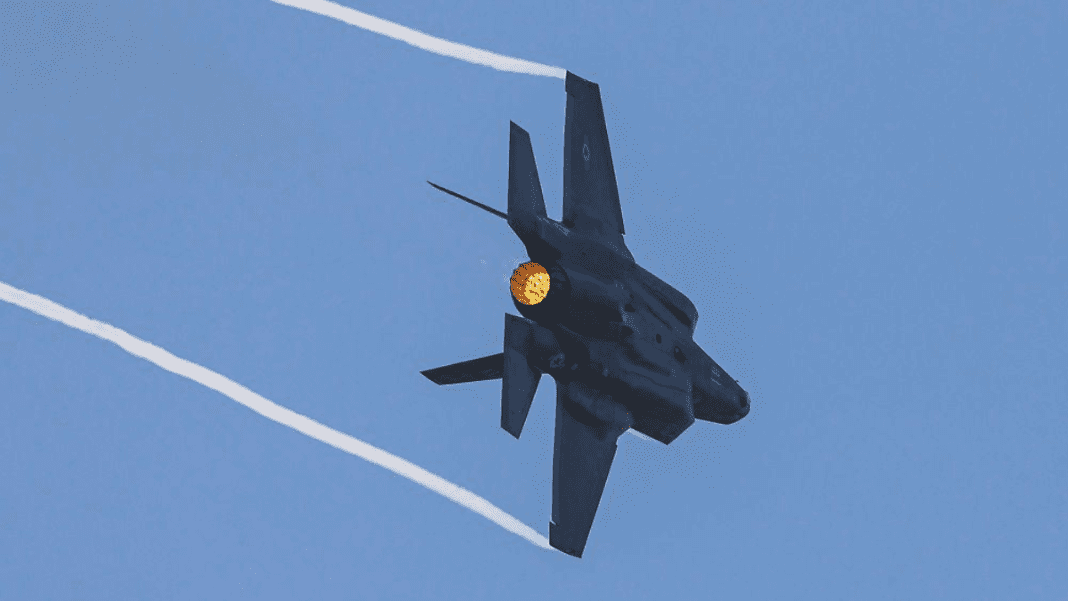The UK Court of Appeal ended a long legal fight by refusing to hear a challenge from the Palestinian human rights group Al-Haq over British-made F-35 jet parts exported to Israel.
Palestinian Group Loses Appeal Over UK’s F-35 Jet Parts Export
The case focused on the UK government’s decision to continue allowing the export of F-35 jet parts, even though many other arms sales to Israel had been suspended. Al-Haq argued that these exports could contribute to violations of international humanitarian law because of Israel’s use of the fighter jets in Gaza and other regions affected by conflict.
Earlier this year, the group had already lost a similar case in London’s High Court. The judges ruled that decisions about defense exports and national security are matters for the government, not the courts. The High Court described the issue as “acutely sensitive and political,” stressing that it was up to the elected government — accountable to Parliament and the people — to decide how to manage security and foreign policy.
Despite this earlier setback, Al-Haq had tried to take its case further by appealing to the UK Court of Appeal in October. However, the judges once again rejected the attempt, stating that it was not the role of the judiciary to second-guess the government’s assessment of national security risks or its judgments about international relations.
Why F-35 Jet Parts Became the Center of the Dispute
The F-35 is one of the world’s most advanced fighter jets, developed through a multinational program led by the United States. The UK plays a major role, producing about 15 percent of every aircraft’s components — including many F-35 jet parts at the heart of this case.
Israel operates several F-35s and has used them in operations in Gaza, Lebanon, and Iran. Because the jets are built using an international supply chain, F-35 jet parts made in the UK can end up in planes used by Israel and other nations.
In 2024, the UK government suspended around 30 arms export licenses to Israel after reviewing its military actions. However, it kept a key exemption known as the “F-35 carve-out,” allowing British-made F-35 jet parts to continue flowing into the global supply network accessible to Israel.
Erdogan Hails ‘New Era’ with Trump: Halkbank Sanctions Near End, F-35 Deal Resurfaces
Human rights groups, including Al-Haq, argued that this exemption undermined the suspension and risked making the UK complicit in potential violations of international law. They warned that continuing to export F-35 jet parts could breach both international humanitarian law and the UK’s own export rules.
The government defended its stance, saying that halting involvement in the F-35 program would cause “extraordinarily serious impacts” on the nation’s defense industry and global partnerships. The High Court agreed, describing the export approval as a “specific measure in an exceptional case.” Judges accepted that the government did not fully apply the Strategic Export Licensing Criteria but justified its decision because of the sensitive national security context.
Human Rights Groups Express Concern Over Court’s Decision
Human rights organizations have strongly criticized the court’s ruling, warning that it allows the UK to continue sending F-35 jet parts to Israel without fully considering their potential use in conflict zones. They argue that the decision undermines accountability and risks enabling actions that could harm civilians.
Campaigners have accused the government of putting political and economic interests ahead of ethical concerns. They believe that by keeping F-35 jet parts in the global supply network, the UK is indirectly supporting military operations that may breach international humanitarian law.
Critics also point out that the UK’s defense partnerships, especially those involving large programs like the F-35, generate billions of pounds in revenue. They claim that financial incentives sometimes overshadow moral responsibilities when deciding on export licenses for sensitive equipment such as F-35 jet parts.
The recent judgment has stirred debate in the UK about how arms exports are managed, particularly when weapons or their components could be used in ongoing conflicts. Legal experts have noted that while the courts respected the government’s right to decide on national security matters, the ruling raises questions about transparency in the arms trade.
US stations F-35 aircraft in Puerto Rico amid wider military presence in Caribbean
Despite losing the appeal, Al-Haq’s case brought widespread attention to the complexities of global defense manufacturing. It showed how F-35 jet parts, built in one country, can easily become part of international military supply chains that reach conflict zones around the world.
For now, the UK’s participation in the F-35 program will continue unchanged. The Court of Appeal’s decision means that the export of F-35 jet parts will remain lawful, even though Israel can still access them through the shared production network.

